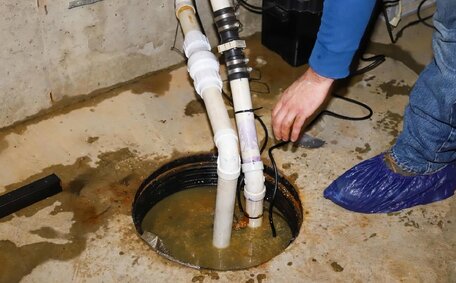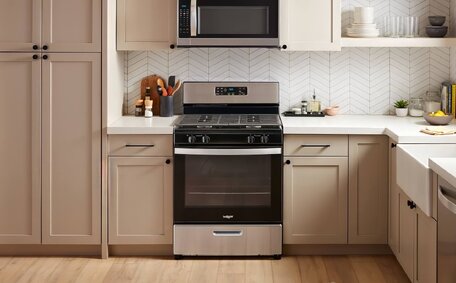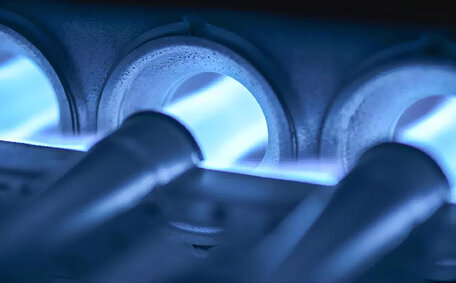Conclusion: Ensuring Seamless Access to Hot Water
Having reliable access to your hot water needs is essential for every home. As outlined, there are various types hot water systems to consider based on factors like upfront costs, energy source, efficiency ratings, and your household’s hot water usage.
We recommend contacting a very professional plumber like Paddington Plumbing to help determine your hot needs and the most suitable system for your property. They can assess aspects like available energy connections, space constraints, system your home might need, and provide tailored advice so you can make an informed decision.
Installing the right hot water heaters will ensure your family always has sufficient hot water - whether it’s gas or electric models, solar, or heat pump technology. With appropriate installation and regular servicing, systems can last more than 15 years of continuous, efficient operation.
Don’t hesitate to utilise the professional plumbing services of the team at Paddington Plumbing for personalised assistance in choosing or maintaining a hot water system for your home. We are always very happy to help!
Introduction to Hot Water Systems
Having a reliable hot water system is crucial for every household. There are a few different types hot water solutions for your home that navigate between electric, gas, solar options, and heat pump technologies. The types water heaters you select depend on factors such as available energy connections, efficiency, costs, environmental footprint, and how the water is heated in your home.
Electric systems heat water using electricity and store it in an insulated tank. Electric systems heat water using electricity and store it in an insulated tank.
Gas systems use either natural gas or LPG to heat the water, creating a versatile water heater system with a LPG heating solution. A solar water heater utilises energy from the sun, harnessing this abundant renewable resource to warm water before it is channeled into a tank.
Here at Paddington Plumbing, we specialise in supplying and installing hot water systems for homes across Paddington and surrounding suburbs. Here at Paddington Plumbing, we specialise in supplying and installing hot water systems for homes across Paddington and surrounding suburbs.
Whether you need a replacement hot water unit or are installing new hot water equipment for the first time, our expertise can help guide you through the process.
Types of Hot Water Systems
There are several main types hot water systems available for residential homes offering distinct features:
Electric Storage
Storage hot water systems, one of the most common solutions, use electricity to warm water in an insulated tank. They are a common choice in areas without access to natural gas. Benefits include:
- Widely available
- Lower upfront costs than gas or solar systems
- Established technology that most plumbers are familiar with installing and maintaining
Drawbacks include higher running costs and greater greenhouse gas emissions than what a hot water system can have using gas or solar systems.
Gas Storage
Gas electric systems use natural gas or LPG to heat water, which gets stored in an insulated tank ready for use. Benefits include:
- Lower running costs than electric systems
- Smaller carbon footprint than electric
Drawbacks are a reliance on the gas supply network, water pressure considerations, and higher upfront costs than electric systems.
Solar Hot Water
Solar water heaters provide a renewable hot water supply using free heat from the sun to warm water. The systems circulate fluid through solar collector panels mounted on the roof resulting in water heated directly by the sun. Benefits include:
- Low running costs once installed
- Renewable energy source
- Reduced greenhouse emissions
Drawbacks include higher upfront costs, reliance on sufficient sunlight, and potentially complex maintenance.
Heat Pump
Electric storage hot water system options extract ambient heat from the surrounding air for water heating. They can maintain water temperature more efficiently than conventional electric units. Benefits include:
- Very energy efficient operation
- Lower greenhouse emissions than electric
Drawbacks include higher purchase costs, and the need for sufficient outdoor space for the hot water system might require the best planning.
It is highly recommended to contact Paddington Plumbing to evaluate your household’s needs and determine which hot water system is best suited for your home.
Electric Hot Water Systems
Standard electric hot water systems heat water using electricity and store it in an insulated hot water tank ready for use. Within an electric water heater, electric heating elements heat the water inside the tank directly.
The water stays hot until drawn through taps or showers. The water stays hot until drawn through taps or showers.
Benefits of electric pump water systems include:
- Lower upfront costs - basic models start around $600 for a small unit
- Wide availability, with various sizes to suit households
- Simple technology familiar to most plumbers
- Can work with Off-Peak electricity tariff incentives for cheaper overnight water heating
Disadvantages compared to gas and solar include:
- Higher energy expenses from electric water heating during the day
- Larger carbon footprint than gas hot water system options
Water tank capacity for electric systems ranges from 50 litres to 400 litres. Larger tanks minimise how often the heating elements activate during peak periods.
A medium 180 litre unit suits a family of 3-4 people. We recommend seeking professional advice to size your system correctly.
Determining which system best fulfills your hot water needs, our modern units include space heating capacities, vitreous enamel lined steel tanks for longevity, and insulation to minimise standby heat losses. Thermostat controls maintain optimum water temperature while reducing energy wastage.
Gas Hot Water Systems
Gas hot water systems use natural gas or LPG to heat water. The gas burner or combustor instantly heats your water, serving as an efficient main types hot system, as it flows through a coil or heat exchanger within the unit. There are two main types of gas hot water systems:
Gas storage hot water systems heat water that is stored in an insulated tank ready for use. Benefits include:
- Lower running costs than electric storage systems
- Faster water heating with higher flow rates
- Smaller carbon footprint than electric systems
However, Gas storage units do rely on pressure gravity systems and access to mains pressure gas which is not available everywhere. And they have a higher upfront cost than basic electric storage systems.
Gas Continuous Flow
Tankless water heaters, or instant hot water systems, heat water on demand rather than storing it. Benefits include:
- Endless hot water supply with no storage limitations
- Compact size requiring less installation space
- Low standby energy losses as no water is stored
Drawbacks of the flow hot water system design include a minimum rate requirement to activate heating. And continuous flow units are generally more expensive to purchase upfront than storage systems.
We recommend Paddington Plumbing to assess your household’s setup, including the option for a new hot water system and existing gas lines if applicable.
Solar Hot Water Systems
Boosted solar hot water systems harness the sun’s renewable energy and include additional boosting when necessary. Solar collectors, usually roof mounted solar panels, contain fluid contributing to the solar hot water supply as they are heated by the sun. This solar heat absorbed fluid then passes through a heat exchanger to warm water in an insulated storage tank.
Benefits of solar hot water systems include:
- Lower running costs - free sunlight replaces electricity or gas for water heating
- Government rebates available as solar is an energy efficient technology
- Environmentally friendly with lower greenhouse emissions
- Long lifespan of around 15-20 years
However, disadvantages include:
- Higher upfront purchase and installation costs - from $4,000 to $8,000 installed
- Performance relies on sufficient direct sunlight exposure
- More complex installations and repairs requiring specialised solar technicians
Solar hot water systems are ideal for households with high daytime hot water usage. We recommend professional sizing and advice to match the system to your roof orientation, climate, and demand. Contact our team at Paddington Plumbing to discover if solar hot water service is right for your home.
Heat Pump Hot Water Systems
Solar Solar heat pump hot water systems are an energy efficient alternative to traditional electric or gas systems. They work by extracting ambient heat from the surrounding air and using it to heat water stored in an insulated tank.
Benefits of a tank water pump water heater include:
- Very high efficiency - heat pumps can generate 2-3 times more heat energy than the electrical energy they consume
- Lower greenhouse gas emissions than electric hot water units
- Quiet operation with minimal moving parts
- Government rebates available in the form of Renewable Energy Certificates
Heat pumps do have higher upfront costs, with a typical household system costing $4,000 to $6,000 installed. However, investing in a new hot system can cut water heating costs by 50-65%, providing a good return on your investment over time.
Ideally, for the best hot water service, the external heat pump unit should be located where it will have adequate airflow and exposure to sunlight. It pairs with a 200-400 litre hot water storage tank. Larger properties may benefit from multiple heat pump units working in unison.
Contact our team at Paddington Plumbing, who can also advise if a heat pump hot water system is right for your home. We can advise on sizing, costs, rebates, and provide full installation.
Comparing Hot Water Systems
When deciding which type hot water system to install for the best hot water experience in your home, there are several key factors to weigh up:
System Type Upfront Cost Running Costs Energy Efficiency Life Expectancy
| Electric Storage | Low | High | Low | 10-15 years |
| Gas Storage | Medium | Low | Medium | 10-15 years |
| Solar Hot Water | High | Low | High | 20+ years |
| Heat Pump | High | Low | Very High | 15-20 years |
It’s important to also have in mind other considerations when selecting a system, including:
- Household hot water usage patterns
- Available energy supply and connections
- Climate and exposure to direct sunlight for solar systems
- Physical space requirements and constraints
- Optimising energy efficiency to reduce hot water bills
Simple steps to manage your types water usage include:
- Installing water efficient showerheads and tap fittings
- Taking shorter showers
- Only running dishwashers and washing machines with full loads
Our team at Paddington Plumbing can offer personalised advice about the electric gas water system your home would benefit from, ensuring you choose the most appropriate, efficient, and cost-effective option.
Choosing the Right Hot Water System
Selecting the optimal hot water system involves weighing up key factors like your household’s hot water usage, number of occupants, climate, and available energy connections. For example, a family of four with high demand may benefit most from a solar or heat pump system, while an electric unit could suffice for a single person household.
Consider installation constraints - is a solar hot water heater viable if sunlight exposure is limited? Is gas an option if no supply lines are in place?
We advise making an informed decision and considering the pros cons based on fuel type and other water heater features, following a thorough assessment of your property’s unique characteristics. The team at Paddington Plumbing can do a great job tailoring recommendations to best suit your needs. With extensive industry expertise, we help homeowners choose the most suitable, efficient and cost-effective hot water solution. Contact us today to discuss the system that’s right for your home and family.






